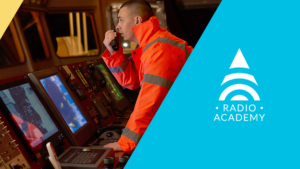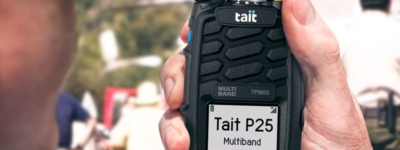Long Term Evolution (LTE) is proving to be a real game changer in Unified Critical Communications, making it increasingly important to consider a unified communications strategy. There are several choices – we’ll explore the top three. Continue Reading
Transport agencies are under constant pressure to deliver growth in passenger numbers, promote greater staff and passenger safety, and develop new and improved services that enhance the customer experience. A key component to this is having the right communications system in place – in this lesson from the Tait Radio Academy, we discuss how the Transport industry can benefit from Unified Critical Communications.
It’s been a tough time for the oil and gas industry as volatile markets, rising costs, declining productivity and a shrinking skilled workforce take their toll on business. The concept of a Digital Oil Field promises a way out, but how can this be achieved? In this latest lesson from the Tait Radio Academy, we discuss the benefits of Unified Critical Communications for the Oil and Gas industry. Continue Reading
Sometimes, the nature of the terrain, the remoteness of the location or the sheer expanse of the area is too much even for the solid coverage of radio networks. In such cases, satellite communications can be an option, but with the myriad of satellite technologies out there, it can be hard to know where to start. In this lesson of the Tait Radio Academy, we take a closer look at the pros and cons of satellite.
Originally designed to connect office computers into local area networks (or LANs), WiFi has become the go-to technology for short to medium-range wireless data communication and connection to the Internet. A WiFi network is inexpensive, easy to install, expandable, offers low latency (better than LMR), and excellent data rates. At first glance, they look ideal – but do WiFi networks really have what it takes to serve the needs of critical industries? In this lesson of the Tait Radio Academy, we discuss the pros and cons of WiFi.
Each organization has its own way of operating, and the right communications networks can greatly enhance worker safety and efficiency. But with so many wireless communications bearers out there, how do you choose the one or the right mix for your organization? In this lesson of the Tait Radio Academy we explore this question.
Mining communications systems are usually geographically constrained around individual mines. However, the mine of the future demands integrated company-wide communications across the entire reach of its operations – not just from pit to port, but across multiple field sites, and city-based corporate offices. How can this be achieved? In this lesson from the Tait Radio Academy, we explore this question.
Firefighters face incredibly harsh challenges in the most hostile and punishing environments. Extreme conditions combined with the necessary safety equipment firefighters wear make it very difficult to communicate effectively. Richard Russell, Incident Ground Solution Architect at Tait Communications, has worked with fire services from around the world to develop a critical communications solution exclusively for the incident ground.
Thanks to advances in technology, organizations which depend on critical communications have greater access to data and communications in more places than ever before, and leading technology companies like Tait and Zetron are taking advantage of this by joining forces to deliver unified critical communications solutions.
Unified Critical Communications (UCC) benefit all industries, but each industry takes advantage of multi-bearer networks in ways specific to their operating environment. Continuing on with the fourth lesson of the Introduction to Unified Critical Communications course, we explore the benefits a UCC strategy can bring to Utilities.













